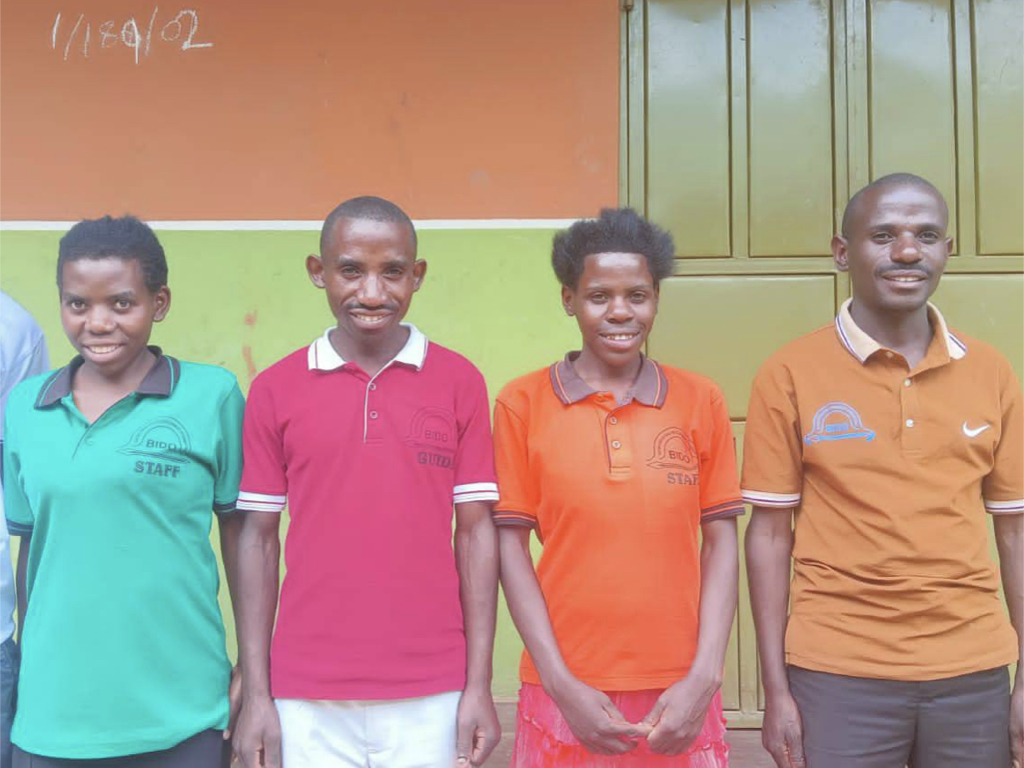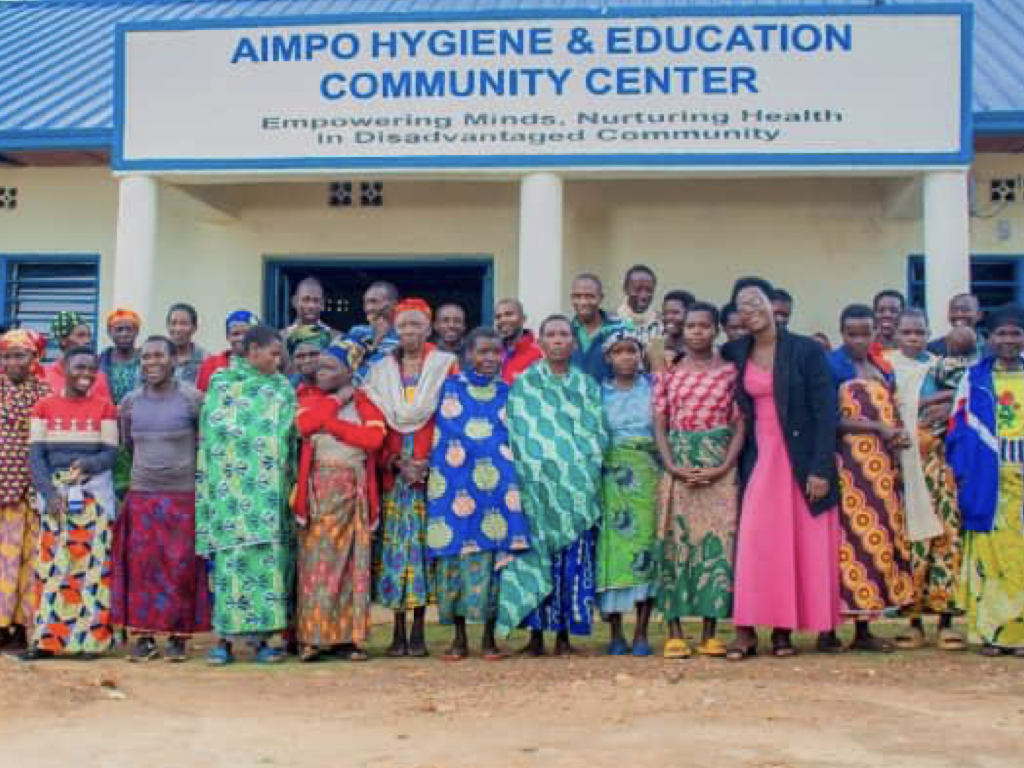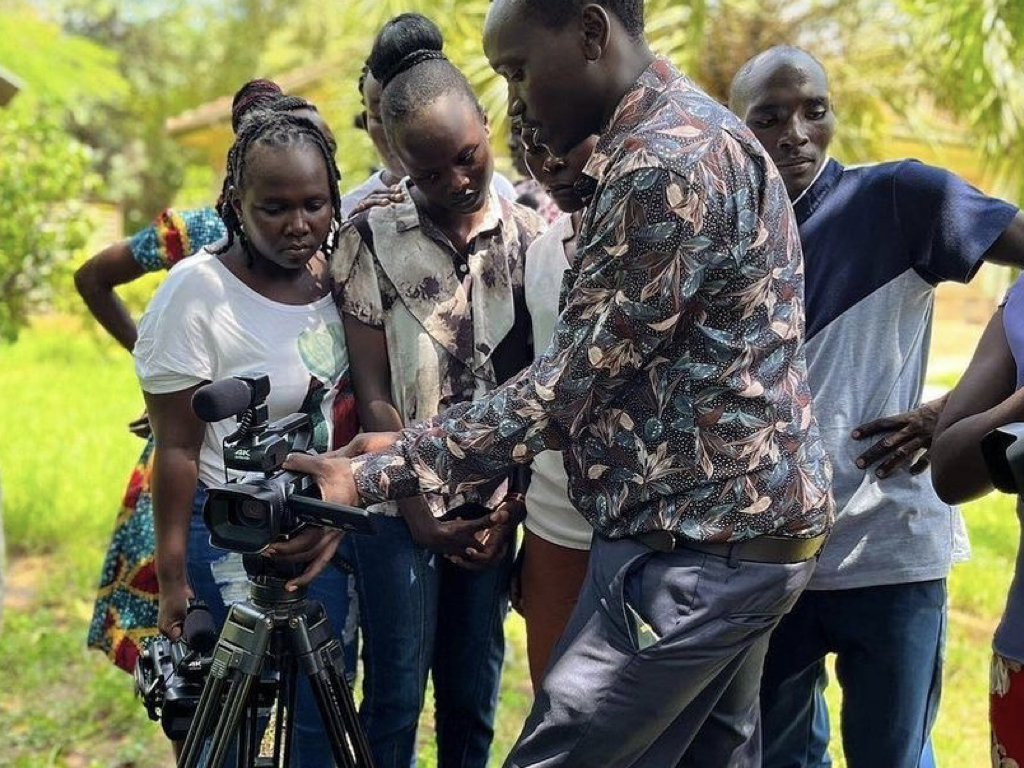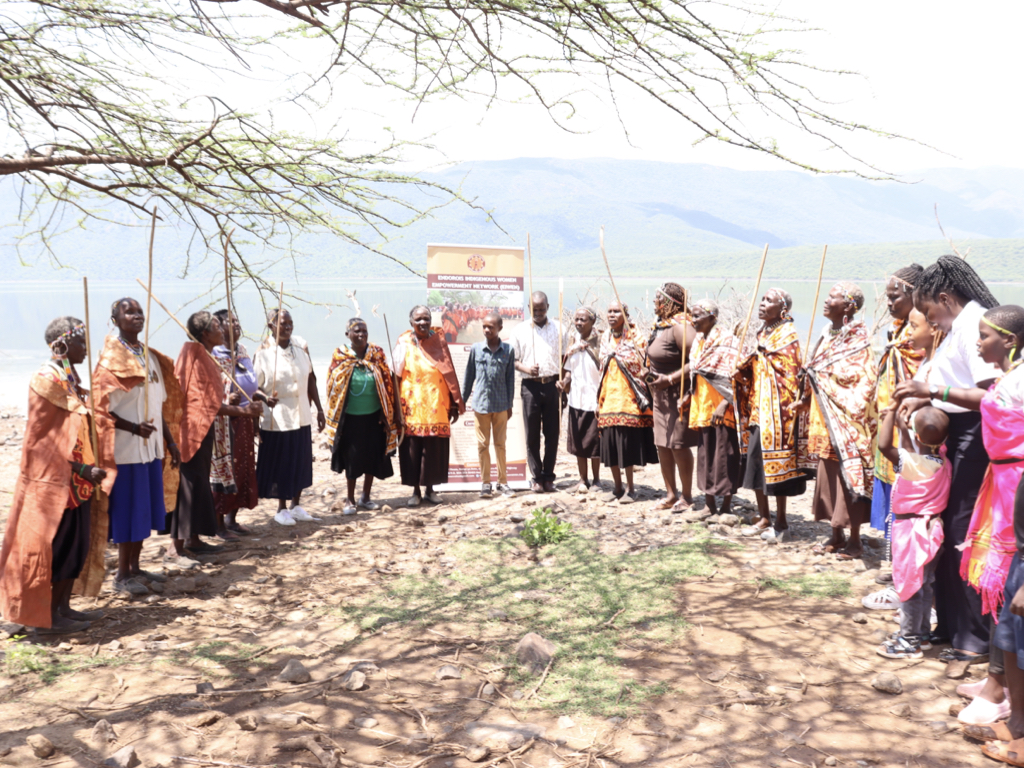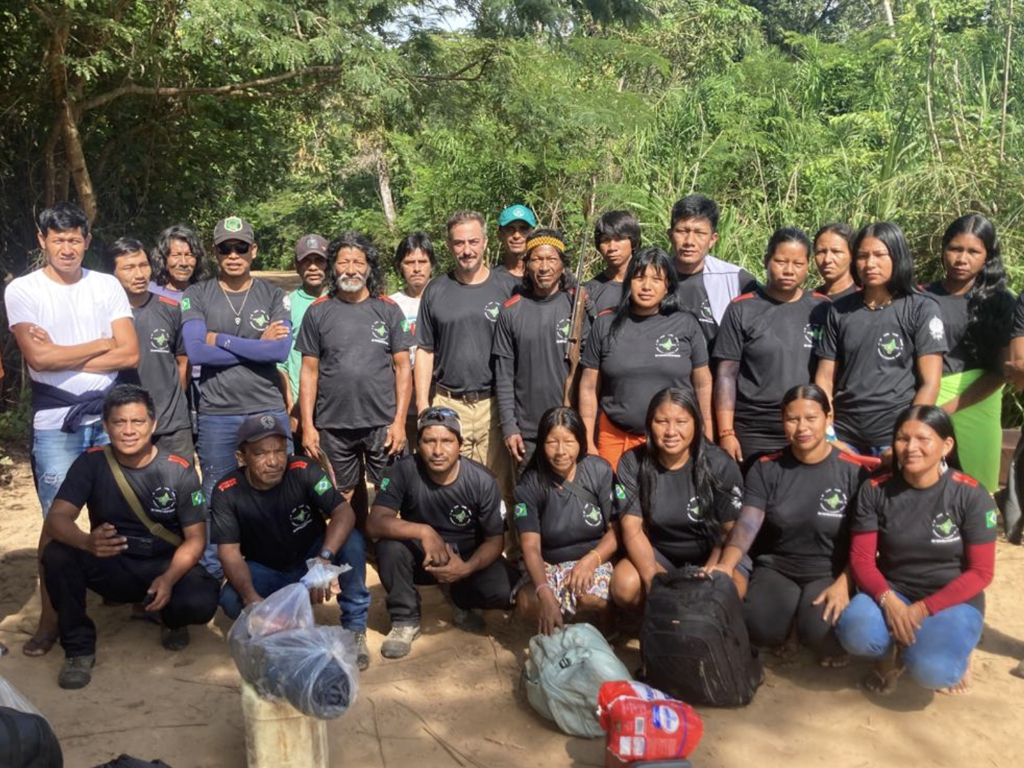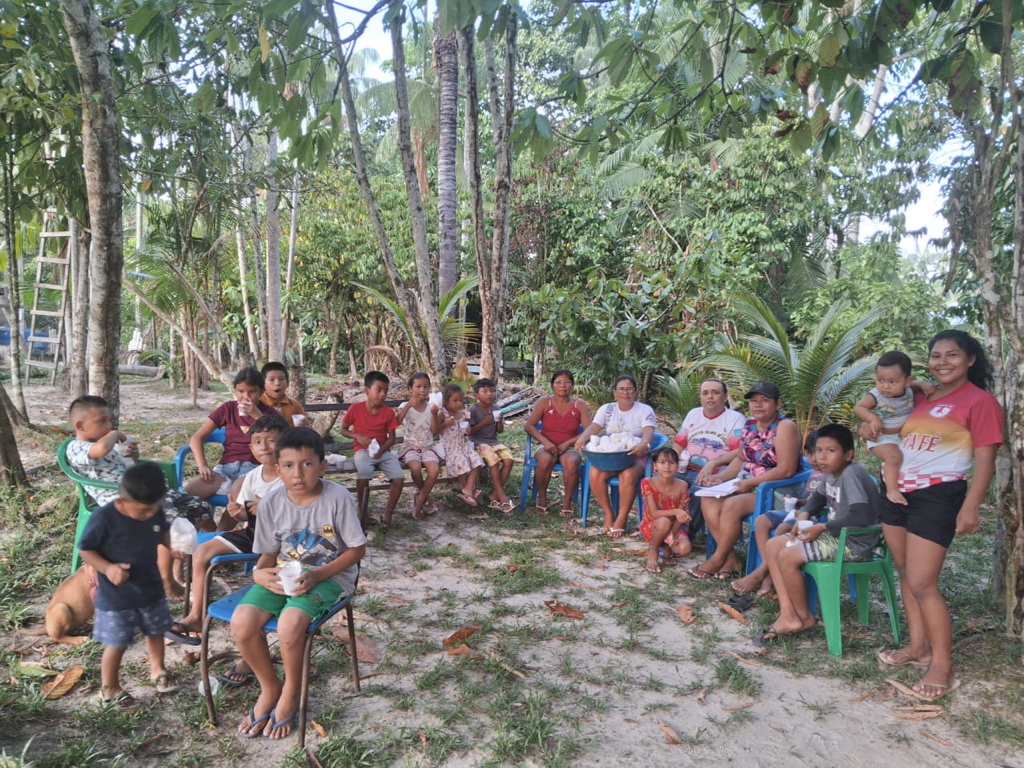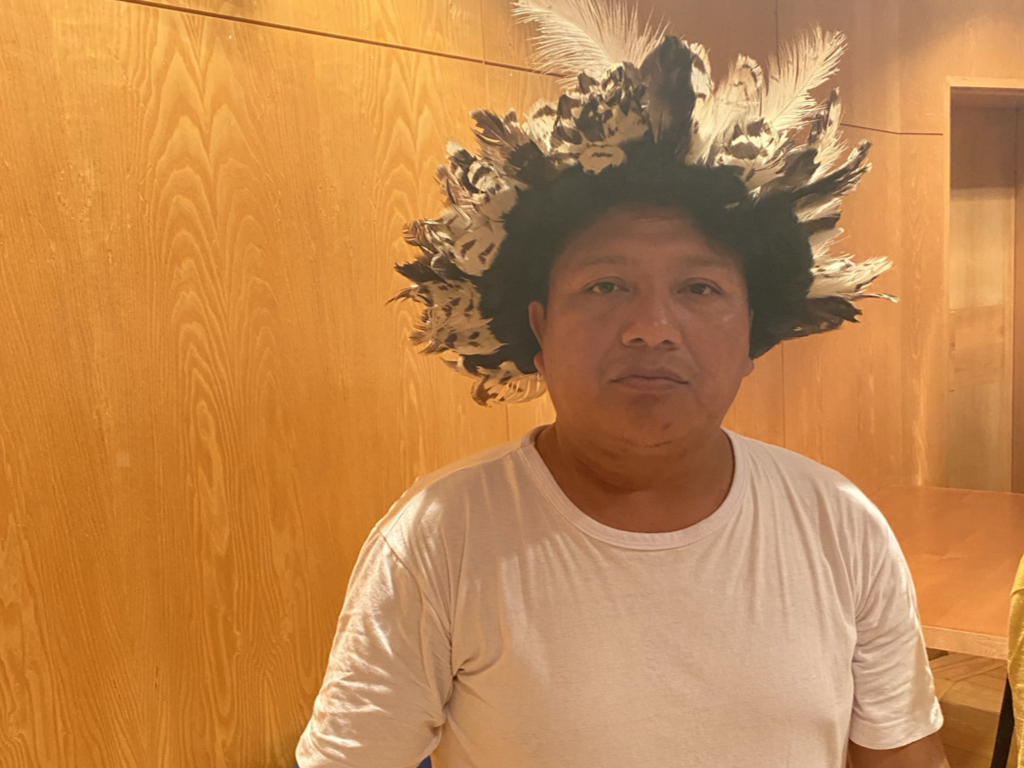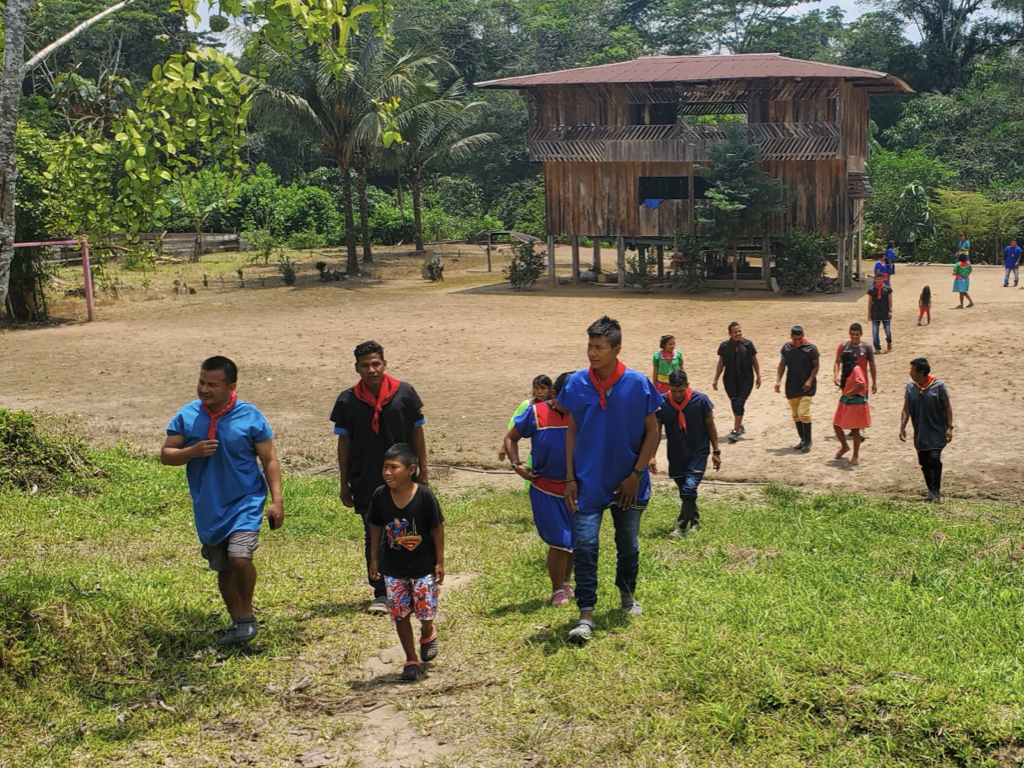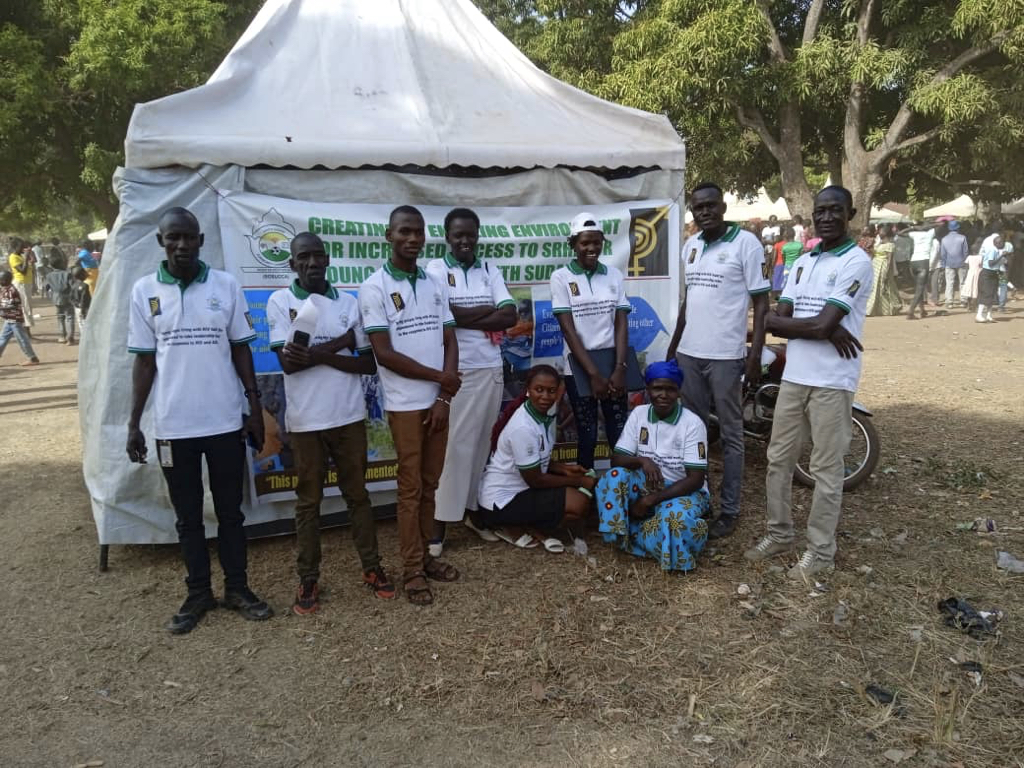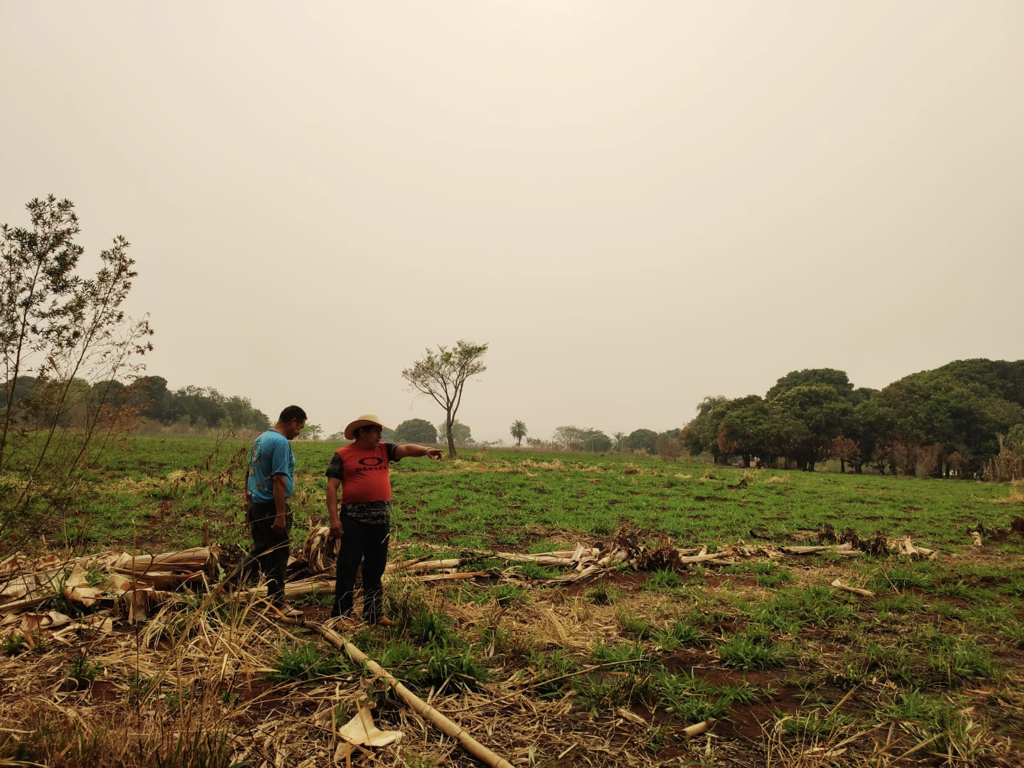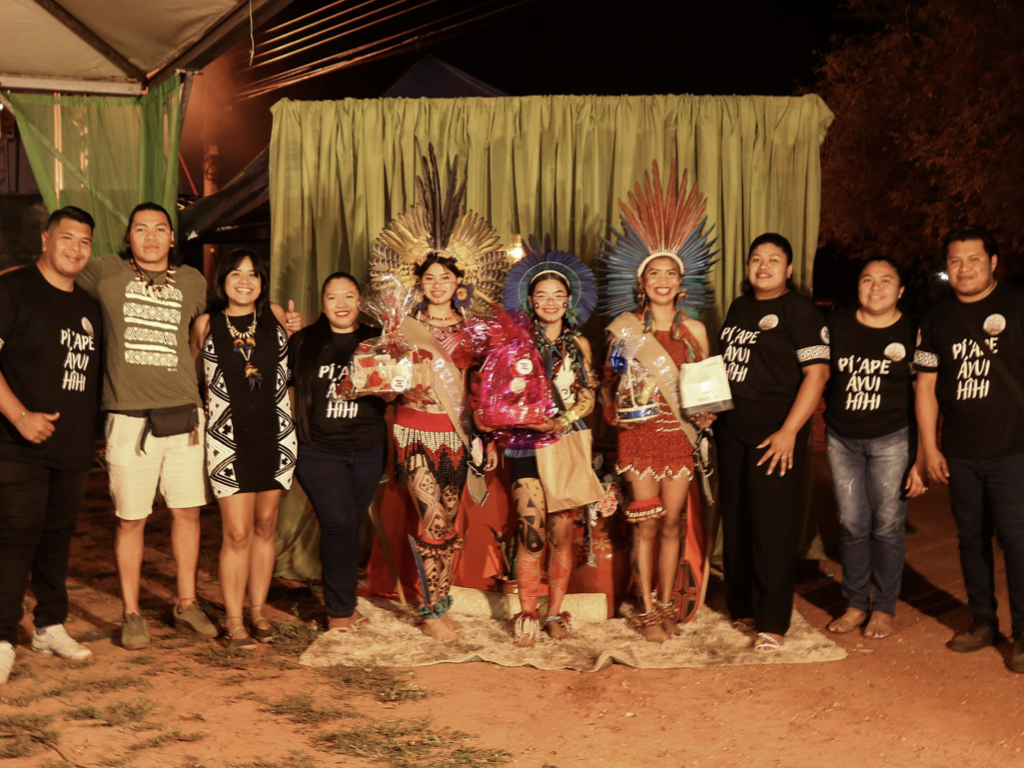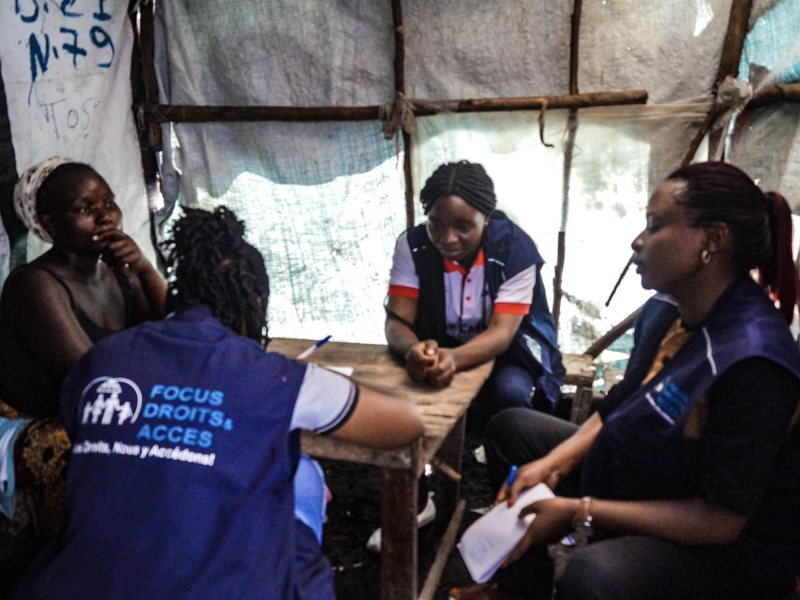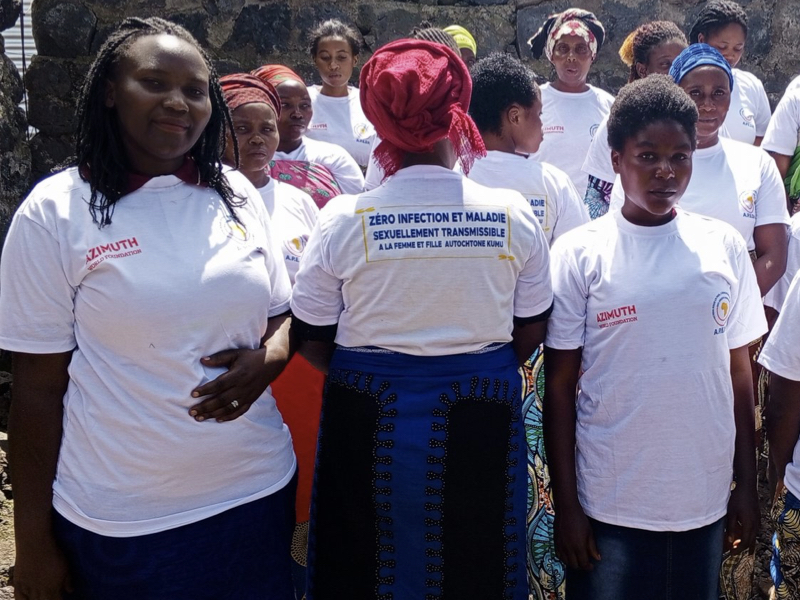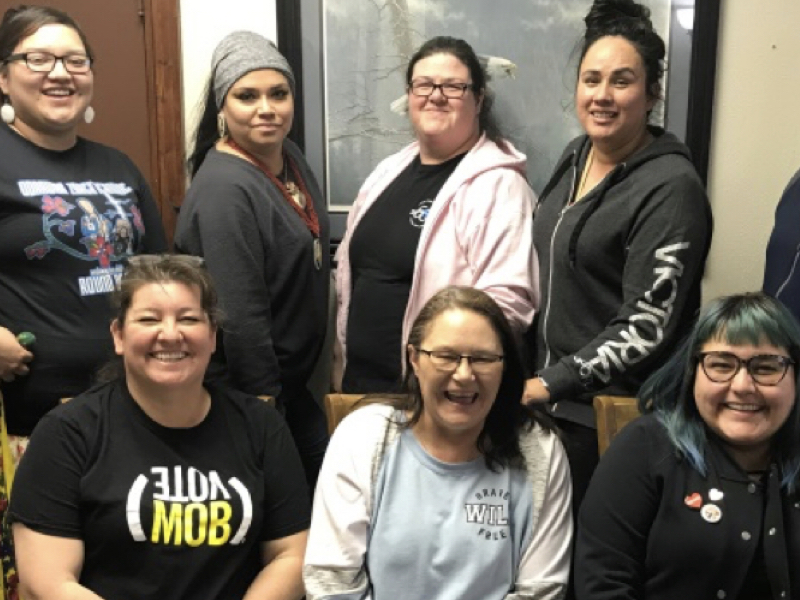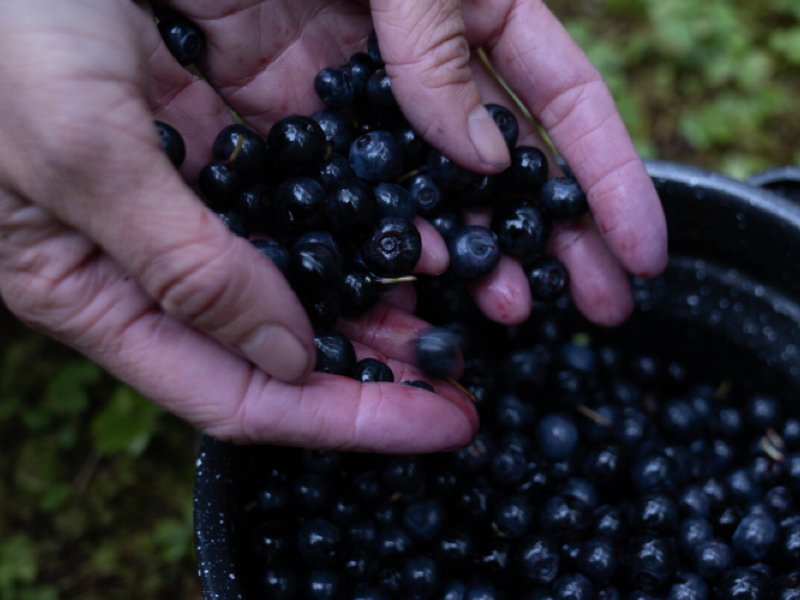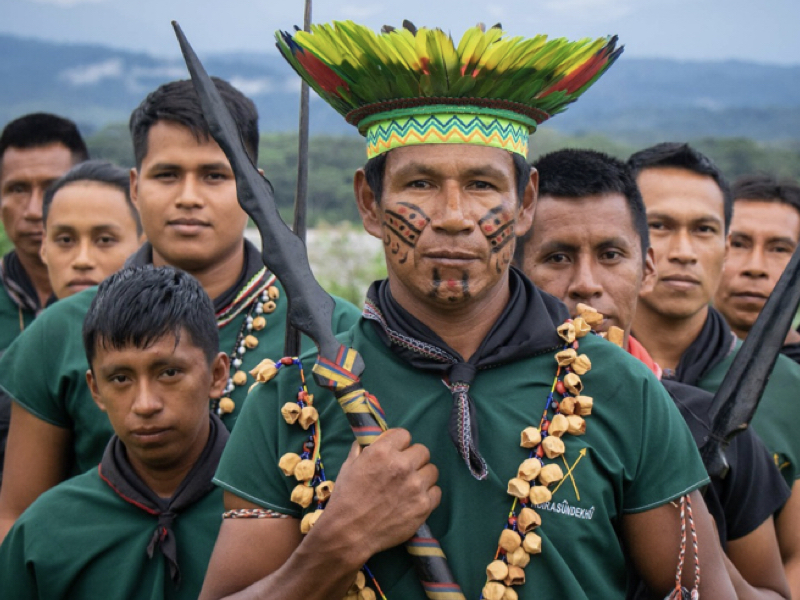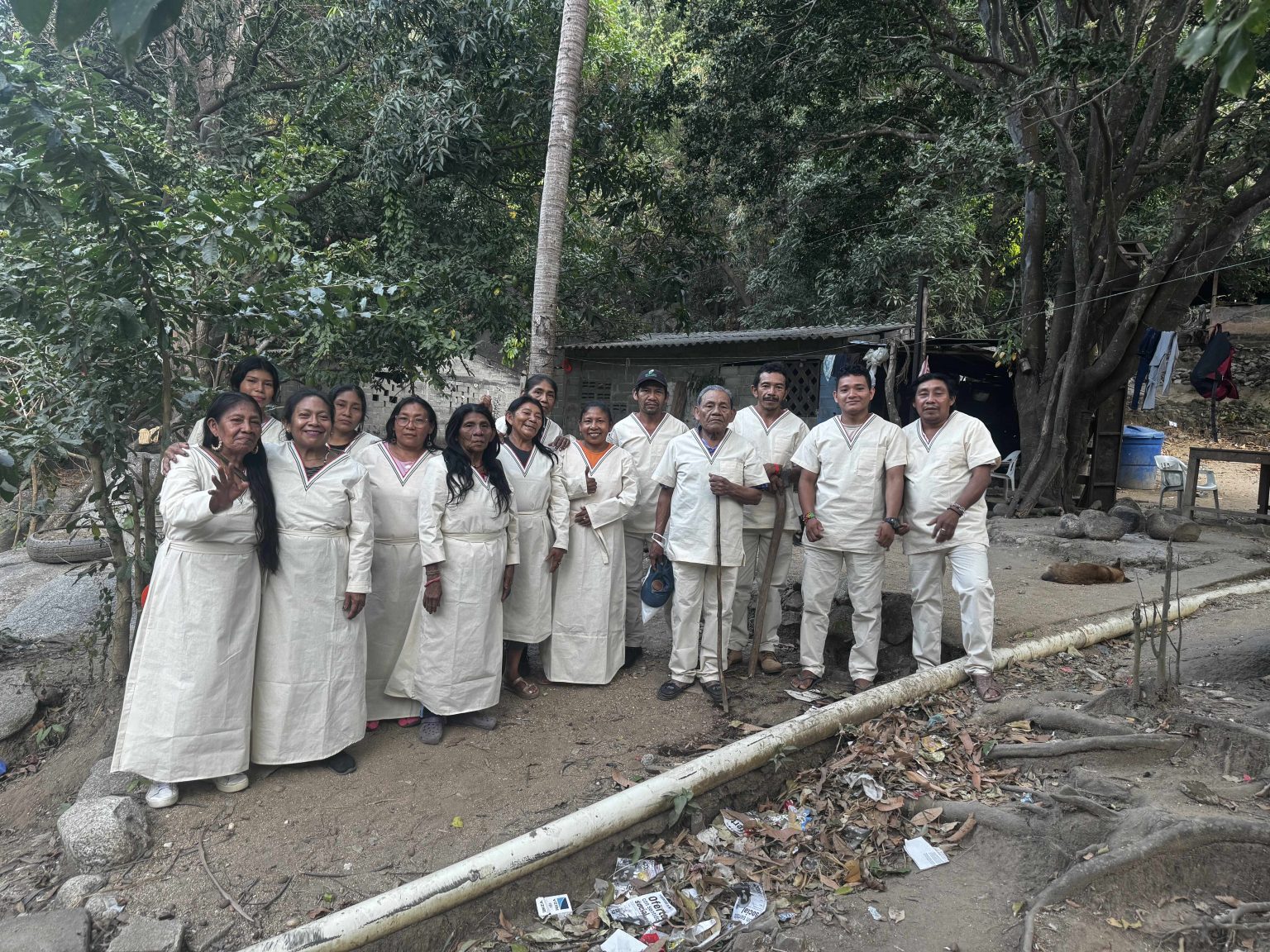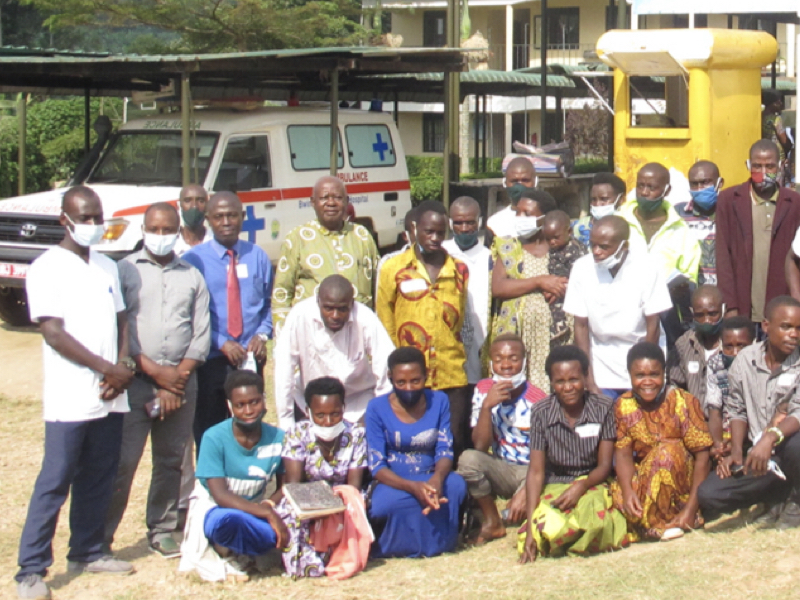Grassroots organizations
Recognizing that communities hold deep wisdom about their needs and solutions, we serve our partners through institutional support and project-specific funding. This approach helps strenghten organizations’ capacity to create lasting change in their communities and territories. Our support is grounded in flexible, multi-year funding that enables organizations to focus on their long-term vision. Our commitment is founded on honest dialogue and mutual learning, acknowledging that genuine partnership requires time, trust, and respect for indigenous leadership.
Our partnerships develop organically through various pathways: referrals from existing partners, open application cycles we organize, and connections that emerge naturally through our network. However, we do not review unsolicited proposals.
Grassroots organizations
Recognizing that communities hold deep wisdom about their needs and solutions, we serve our partners through institutional support and project-specific funding. This approach helps strenghten organizations’ capacity to create lasting change in their communities and territories. Our support is grounded in flexible, multi-year funding that enables organizations to focus on their long-term vision. Our commitment is founded on honest dialogue and mutual learning, acknowledging that genuine partnership requires time, trust, and respect for indigenous leadership.
Our partnerships develop organically through various pathways: referrals from existing partners, open application cycles we organize, and connections that emerge naturally through our network. We do not review unsolicited proposals.
The Batwa were the original inhabitants of the equatorial forests in Africa’s Great Lakes region. As hunter-gatherers living in harmony with their environment for millennia, they developed sophisticated knowledge of forest ecosystems and maintained deep spiritual connections to their ancestral lands. However, since the 1960s, systematic displacement through encroachment, deforestation, and forced and violent evictions for “conservation” projects has devastated their traditional way of life. Without compensation or alternatives, many Batwa now live in extreme poverty, facing discrimination, lack of access to basic services, and the risk of cultural extinction. Yet across the region, Batwa communities demonstrate remarkable resilience.
Batwa,Grassroots Organizations,Partnerships
Batwa Indigenous Development Organization
Empowering Batwa Communities through Food Sovereignty and Education about bido read more
Batwa,Grassroots Organizations,Partnerships
African Initiative for Mankind Progress Organization
Strengthening Batwa Communities through Access to Fundamental Rights, Cultural Preservation and read more
The Endorois have been the traditional custodians of Lake Bogoria and the Siracho Range in Kenya for over half a millennium. This region holds profound spiritual and cultural significance for their community. Their deep connection to the land and extensive Indigenous knowledge systems have been vital to preserving biodiversity and maintaining harmony for generations. However, in 1973, the Endorois faced forced displacement from their ancestral lands without consultation or consent to create the Lake Bogoria National Reserve. Despite a landmark 2010 African Commission ruling declaring their eviction illegal, implementation of justice remains limited. This displacement, combined with climate change impacts, threatens not only their physical well-being but their entire cultural fabric and spiritual identity.
Endorois,Grassroots Organizations,Partnerships
Jamii Asilia Centre
Revitalizing Ancestral Roots, Protecting Endorois Knowledge and Raising Awareness about Community read more
Endorois,Grassroots Organizations,Partnerships
Endorois Indigenous Women Empowerment Network
Supporting Endorois-Led Advocacy for Land Justice and Climate Resilience about eiwen read more
The Krahô’s approach offers powerful lessons in Indigenous self-determination: they have developed their monitoring methodology based on ancestral practices of walking and observing their territory, adapted to address contemporary threats from agribusiness expansion, illegal extraction, and institutional instability. Their work safeguards one of the largest continuous areas of Cerrado—a biome whose waters sustain the Amazon itself—while strengthening cultural continuity and community cohesion.
Grassroots Organizations,Krahô,Partnerships
Me Hoprê Catejê
Indigenous-led territorial protection safeguarding one of the largest continuous Cerrado areas on the planet, read more
Grassroots Organizations,Partnerships,Tikuna & Kambeba
Kokama and Kambeba-Omágua Indigenous Associations of Santo Antônio do Içá
Creating protective cultural sanctuaries for Indigenous youth to counter narco-trafficking influences read more
The Karipuna people inhabit a 153,000-hectare Indigenous territory in Rondônia, bordering Porto Velho, Nova Mamoré, and Guajará-Mirim. After facing near extinction from disease during first contact in the 1970s, they have demonstrated remarkable resilience in protecting their territory and culture. The Karipuna maintain a profound spiritual connection with their forest, viewing it as a mother they must protect. Their territory also shelters groups living in voluntary isolation, adding to their responsibility as forest guardians. Their traditional practices are intrinsically linked to forest preservation—they depend on its resources for food, medicine, and cultural activities. Community members practice sustainable resource management, asking permission before harvesting and taking only what they will consume. This reflects their deep understanding of ecological balance and traditional knowledge systems. However, their territory faces severe threats. The Karipuna Indigenous Territory ranks among Brazil’s most deforested Indigenous lands, with deforestation rates significantly increasing since 2018. Nearly one-third of their territory is threatened by invasions from illegal loggers and land grabbers, while surrounding areas have been cleared for cattle ranching. Despite these pressures, the Karipuna continue their role as forest guardians, fighting to preserve both their cultural heritage and one of the Amazon’s critical ecosystems through their traditional knowledge and active territorial defense.
Grassroots Organizations,Karipuna de Rondônia,Partnerships
Tangareí Karipuna Ethno-environmental Institute
Building Institutional Foundations to Defend Indigenous Territory and Rights of the read more
Cofán,Grassroots Organizations,Partnerships
Fundación Sobrevivencia Cofán
Protecting Indigenous Sovereignty Through Territorial Defense and Traditional Knowledge about FSC read more
Each of these initiatives stands as a powerful testament to community-led solutions: in the Sierra Nevada de Santa Marta, the Narakajmanta reveal the sophistication of their ancestral water management systems, essential for climate adaptation. In Lovongai, twelve clans preserve irreplaceable knowledge of integrated land and sea stewardship through innovative documentation work. In the Ecuadorian Amazon, Indigenous patrols protect over a million hectares of rainforest, demonstrating the effectiveness of traditional territorial defense strategies. In Bismarck and Cordova, communities reclaim and strengthen millennial health and food practices, rekindling their connection to wisdom that sustained their peoples’ wellbeing for generations. In North Kivu, Indigenous women’s organizations address critical health and safety challenges, with Focus Droits et Accès advancing menstrual and reproductive health and dignity for Batwa women and girls, while APEDH empowers the Kumu community through holistic approaches to combat gender-based violence and promote sexual and reproductive health rights.
Grassroots Organizations,Other Indigenous-led Partnerships,Partnerships
South Sudan Community Change Agency
Rebuilding Community Systems Through Indigenous Youth Leadership in Post-Conflict South Sudan read more
Grassroots Organizations,Other Indigenous-led Partnerships,Partnerships
Yvy Marane’y “Land Without Evil” Institute
Supporting Guaraní and Kaiowá Resilience in a Context of Territorial Struggle read more
Grants,Grassroots Organizations,Other Indigenous-led Partnerships,Partnerships,Safe Water
Protecting Pantanal Waters: Indigenous-Led Environmental Mapping and Water Security Initiative, Mato Grosso do Sul, Brazil
Mitigating water scarcitythrough integrated hydrographic mapping,rainwater harvesting systems,and reforestation with native species. What read more
Grants,Grassroots Organizations,Other Indigenous-led Partnerships,Partnerships,Public Health
Improve the Health and Menstrual Hygiene of Indigenous Women and Girls in the Rural Areas of North Kivu, DRC
Grant to strengthen education, sensitize the community about menstruation, and provide the materials and read more
Grants,Grassroots Organizations,Other Indigenous-led Partnerships,Partnerships,Public Health
Empowering the Kumu Community to Combat Gender-Based Violence and Promote Sexual and Reproductive Health in Nyiragongo, North Kivu, DRC
Grant to strengthen the involvement of young girls and women from the Kumu community read more
Grants,Grassroots Organizations,Other Indigenous-led Partnerships,Partnerships,Public Health
The Medicine Stone Health in Bismarck, North Dakota
Grant to address the public health weaknesses of the Native American Urban Tribal population read more
Grants,Grassroots Organizations,Humankind and Nature,Other Indigenous-led Partnerships,Partnerships
Rebalancing Native Diets with Subsistence Foods in Cordova, Alaska
Grant to restore the historical and cultural relationship of the Native Village of Eyak read more
Grants,Grassroots Organizations,Humankind and Nature,Other Indigenous-led Partnerships,Partnerships
Land Defense Training School for Indigenous Land Patrols in the Upper Amazon, Ecuador
Grant to scale Indigenous-led territorial monitoring to protect 1,000,000 hectares of biodiverse rainforest territories read more
Grants,Grassroots Organizations,Humankind and Nature,Other Indigenous-led Partnerships,Partnerships
Ethno-Program of Climate Water Management for the Indigenous Narakajmanta, in Colombia
Grant to guarantee climate water management in the Narakajmanta Indigenous community in the Sierra read more
Grants,Grassroots Organizations,Other Indigenous-led Partnerships,Partnerships,Public Health
Advancing Batwa Human Rights: Sustaining our Partnership in Bwindi, Uganda
Multiple grants to support the Bwindi Community Hospital's outreach and livelihood projects serving Batwa communties read more


